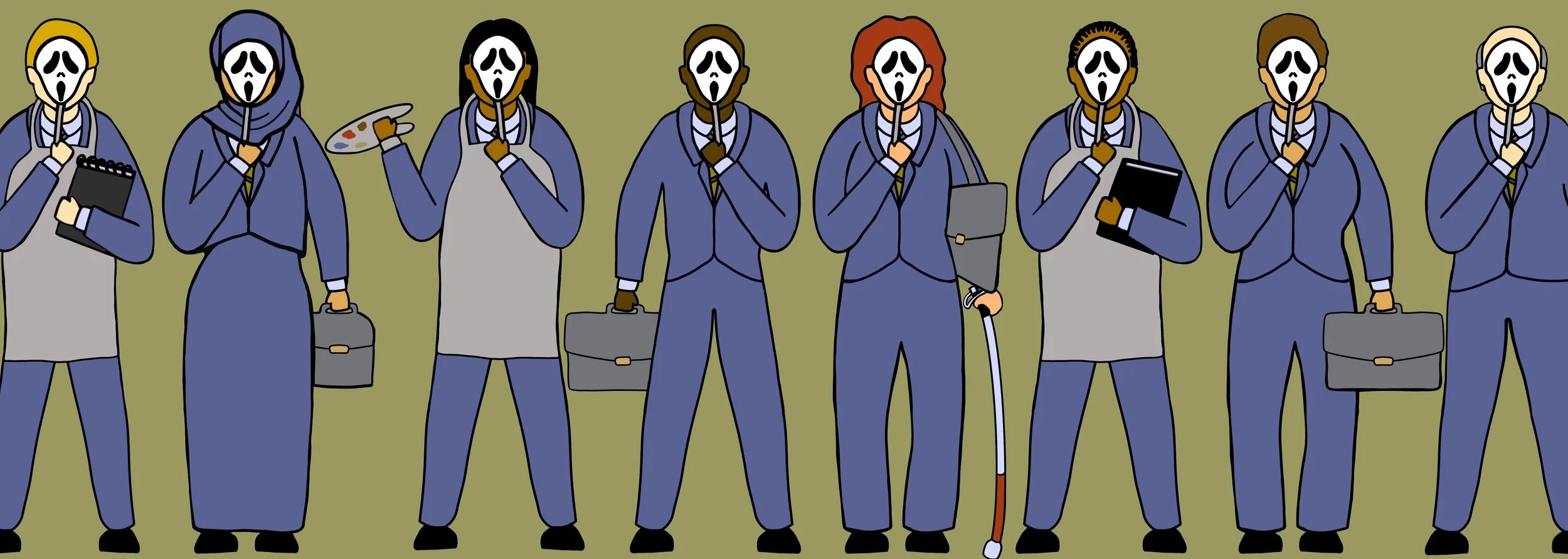BUSINESS GHOSTING - 3 ways to prevent becoming a ghost
From the blog series:
The Art in Business
Ghosting in a professional setting is in no way new to any of us – everything from a potential employee not showing up to an interview, to that potential client you met at a conference that seemed initially enthusiastic but now won’t return your emails.
This bizarre communication (or lack thereof) seems to be increasingly common. What long-term complications can arise from being a professional ghost? How can you prevent the reputation of being a professional ghost?
PROBLEM: Your overwhelmed, burned out, exhausted, and the energy to respond to one more email or phone call seems unbearable.
SOLUTIONS:
Take advantage of your email’s automatic reply feature. Craft a simple message that you are currently out of office/studio and state a designated time you’ll be replying. If it’s a specific person or project you need to break from, have a stand-by email template ready for such occasion. That way you can still get a much-needed break and re-energize before continuing communication and addressing their needs while the other party feels valued. Make sure to mark in your calendar or set an alarm to ensure you remember to reply when promised.
Build your team. Is there an employee, colleague, or intern, that can take care of this even temporarily? Although this may not be a solution when developing a social connection, it could ease your stress with other communication if you build a team approach to a project. For example, reply with something as simple as, “So and so is part of my team and we will be working together installing this project. They will email you a sample mood board by the end of the week”
Outsource your communication. Could it be you are struggling, not with difficulty communicating, but rather writer’s fatigue? Physical symptoms such as wrist and eye strain from continuous computer and screen use can increase the burdensome feeling of additional typing. Switching to phone communication, talk-to-text, or hiring a transcriptionist may help alleviate your physical and/or emotional writer’s stress.
PROBLEM: You’re avoiding an uncomfortable situation.
Remember the classic (albeit mythical) idiom of an ostrich burrowing it’s head in the sand? This classic avoidance technique: “if I ignore the person/problem they/it will go away.” Although avoiding sending a reply might be the easiest short-term fix, the consequences of this behavior can have devastating long-term effects on you and your businesses reputation. Honest communication can set you apart, in a positive way, from the typical professional pack – even if the message might side more to the negative. A report from SHRM stated four out of ten workers say their manager fails to frequently engage in honest conversations about work topics; hence the problem.
SOLUTION: Confront difficult situation quickly and directly.
Waiting to deal with a difficult client, annoying social contact, or breaking the bad news to someone that you’ll be “going in a different direction from” can feel as awkward or uncomfortable as a breakup. However, the longer you drag out communication, the longer the discomfort will weigh upon you affecting your time and energy. If your contact is at all aggressive or unprofessional, sending one direct email addressing their concern and then clearly stating the cease of all future communication can give you that needed permanent break-up.
PROBLEM: Accidental communication failure.
We’ve all found that one email in the mess of our inbox weeks after we forgot to reply. Or perhaps, there’s that awkward run-in with an un-replied contact when our memory jolts and we remember that we promised a phone call or zoom meet months ago.
SOLUTION: Genuine honesty is the best policy.
Make sure to respond to them ASAP and be genuinely apologetic that you have been tardy in your reply. Reassure them that you value their time and did not consciously ghost. Then make a plan to address their initial communication. We all make mistakes and humanizing ourselves by being honest in our errors can go far in building positive business relationships.
Do you have any anti-ghosting tips? Comment below.
*SHRM July 2019 Omnibus, Bureau of Labor Statistics, and the Center for American Progress.












his mural is only possible through the Greater Columbus Art’s Council’s award of their Mural Assistance Grant, I can not thank them enough for their unwavering support of Columbus’ artists and am deeply honored to have been a chosen muralist.